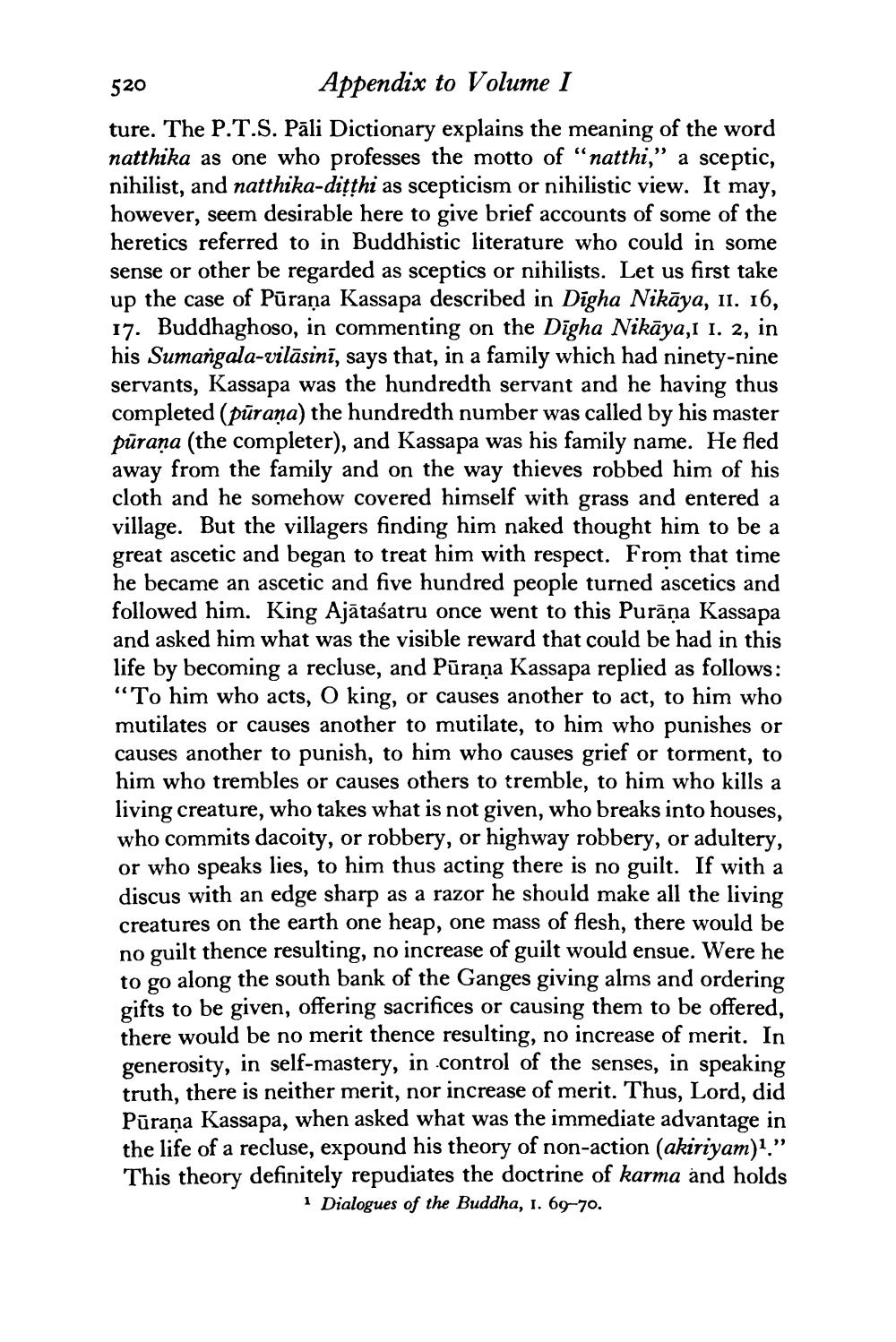________________
520
Appendix to Volume I ture. The P.T.S. Pāli Dictionary explains the meaning of the word natthika as one who professes the motto of “natthi," a sceptic, nihilist, and natthika-ditthi as scepticism or nihilistic view. It may, however, seem desirable here to give brief accounts of some of the heretics referred to in Buddhistic literature who could in some sense or other be regarded as sceptics or nihilists. Let us first take up the case of Pūraņa Kassapa described in Dīgha Nikāya, 11. 16, 17. Buddhaghoso, in commenting on the Dīgha Nikāya,1 I. 2, in his Sumangala-vilāsinī, says that, in a family which had ninety-nine servants, Kassapa was the hundredth servant and he having thus completed (pūrana) the hundredth number was called by his master pūraņa (the completer), and Kassapa was his family name. He fled away from the family and on the way thieves robbed him of his cloth and he somehow covered himself with grass and entered a village. But the villagers finding him naked thought him to be a great ascetic and began to treat him with respect. From that time he became an ascetic and five hundred people turned ascetics and followed him. King Ajātaśatru once went to this Purāņa Kassapa and asked him what was the visible reward that could be had in this life by becoming a recluse, and Pūraņa Kassapa replied as follows: “To him who acts, O king, or causes another to act, to him who mutilates or causes another to mutilate, to him who punishes or causes another to punish, to him who causes grief or torment, to him who trembles or causes others to tremble, to him who kills a living creature, who takes what is not given, who breaks into houses, who commits dacoity, or robbery, or highway robbery, or adultery, or who speaks lies, to him thus acting there is no guilt. If with a discus with an edge sharp as a razor he should make all the living creatures on the earth one heap, one mass of flesh, there would be no guilt thence resulting, no increase of guilt would ensue. Were he to go along the south bank of the Ganges giving alms and ordering gifts to be given, offering sacrifices or causing them to be offered, there would be no merit thence resulting, no increase of merit. In generosity, in self-mastery, in control of the senses, in speaking truth, there is neither merit, nor increase of merit. Thus, Lord, did Pūraņa Kassapa, when asked what was the immediate advantage in the life of a recluse, expound his theory of non-action (akiriyam)?.” This theory definitely repudiates the doctrine of karma and holds
Dialogues of the Buddha, 1. 69-70.




